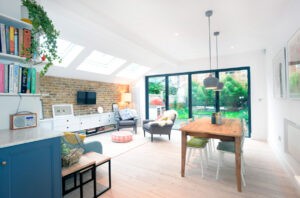Nestled beneath our homes, underutilised basements are often relegated to the role of dark storage spaces. Yet, they possess a world of untapped potential for homeowners looking to expand their living space. Basement conversions are more than just home improvement projects; they’re a creative solution to reimagine the very foundation of your home. Whether you crave a serene home office for remote work or want to create an entertainment hub, your basement holds the promise of making these visions a reality.
This article offers insights and expertise from planning and design to enhancing your home’s overall value. We’ll navigate the complexities of basement conversions, ensuring you’re equipped with the knowledge and inspiration to make the most of this hidden gem beneath your house.
Discover the tricks of optimising the flow and functionality of your space, even in the face of limited natural light. Materials and finishes play a pivotal role in your basement’s transformation, and we’ll guide you in making choices that look stylish and withstand potential insulation and moisture issues.
We’ll explain the value of collaborating with architects and interior designers throughout the design phase, who can help bring your vision to life. The result? A basement that’s aesthetically pleasing and highly functional, making the most of your basement’s unique potential.
One of the most exciting aspects of a basement conversion is the potential to add significant value to your home. We’ll explore the return on investment (ROI) concept and how a well-executed conversion can enhance your property’s appeal and market value.
But with every journey, there are challenges to overcome. We’ll address common pitfalls and provide valuable insights on navigating them, whether it’s moisture problems, inadequate ceiling height or the quest for natural light.
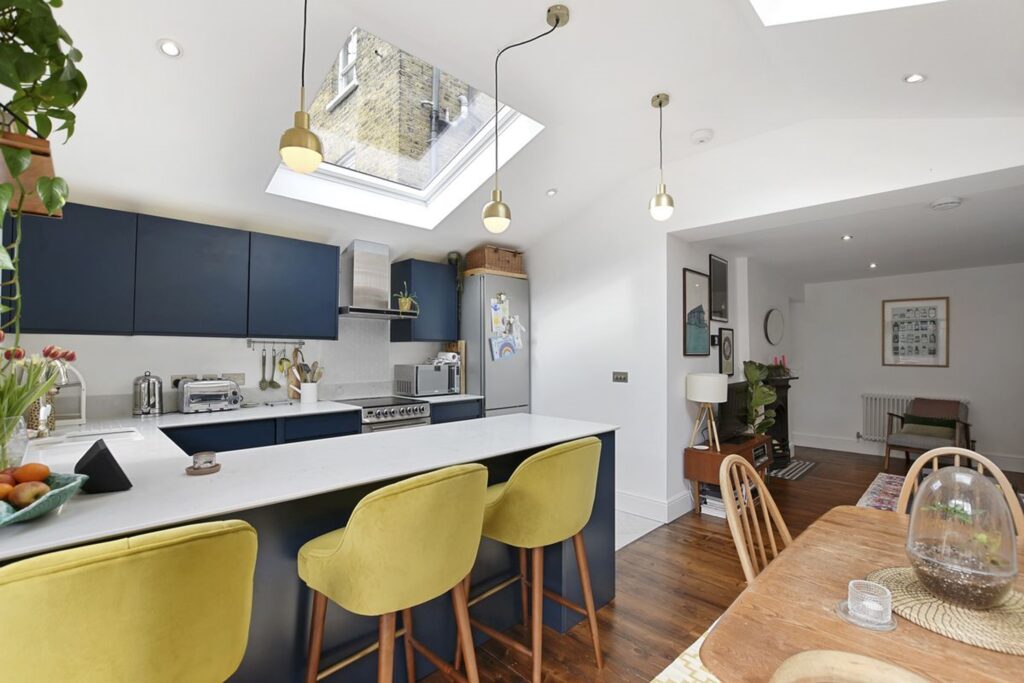
Basement Conversion Planning: Where to Begin
The process of transforming your basement begins with careful planning. Before you dive into the design and construction phases, it’s crucial to lay a solid foundation for your project. This means starting with a clear understanding of your goals, budget, and local regulations.
Begin by assessing the feasibility of your basement conversion. Not all basements are suitable for transformation due to low ceiling height or excessive moisture issues. A professional assessment can help determine whether your space is conducive to conversion.
Obtaining the necessary permits is another critical step. Local building codes and regulations may dictate specific requirements for basement conversions, such as egress windows for safety or fire-rated materials. Failing to secure the required permits can lead to costly setbacks and legal issues.
Setting a realistic budget ensures your project stays on track financially. Basement conversions can vary significantly in cost depending on the complexity of the design and the quality of materials used. Consider factors such as plumbing and electrical work, which can add to your expenses.
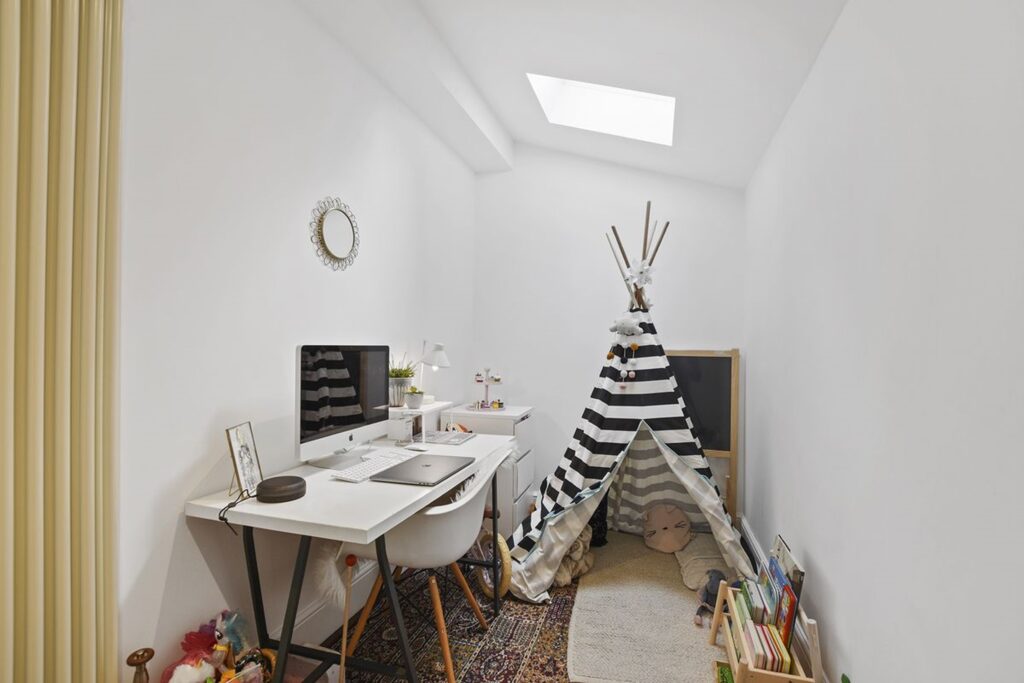
Designing Your Dream Basement
Once you’ve completed the initial planning phase, it’s time to dive into the exciting design world. Your basement’s layout should align with your vision for the space and cater to your specific needs. Start by identifying the primary purpose of the area – whether it’s a home theatre, a guest suite, a playroom, or a combination of functions.
Consider the layout and flow of your basement, optimising it for functionality and accessibility. Pay attention to factors like natural light, which can be limited in basements. Strategies such as strategically placed windows or light wells can introduce brightness and make the space feel less subterranean.
Materials play a crucial role in the design. Choose finishes that not only look stylish but also withstand potential moisture issues. For instance, engineered hardwood flooring is a popular choice because it’s more resistant to moisture than solid wood. Lighting and ventilation are key to creating a comfortable and inviting basement space.
During the design phase, an architect or interior designer can help you bring your vision to life. They can create detailed plans, 3D renderings, and material selections. Collaborating with professionals ensures your design is both aesthetically pleasing and functional, making the most of your basement’s potential.
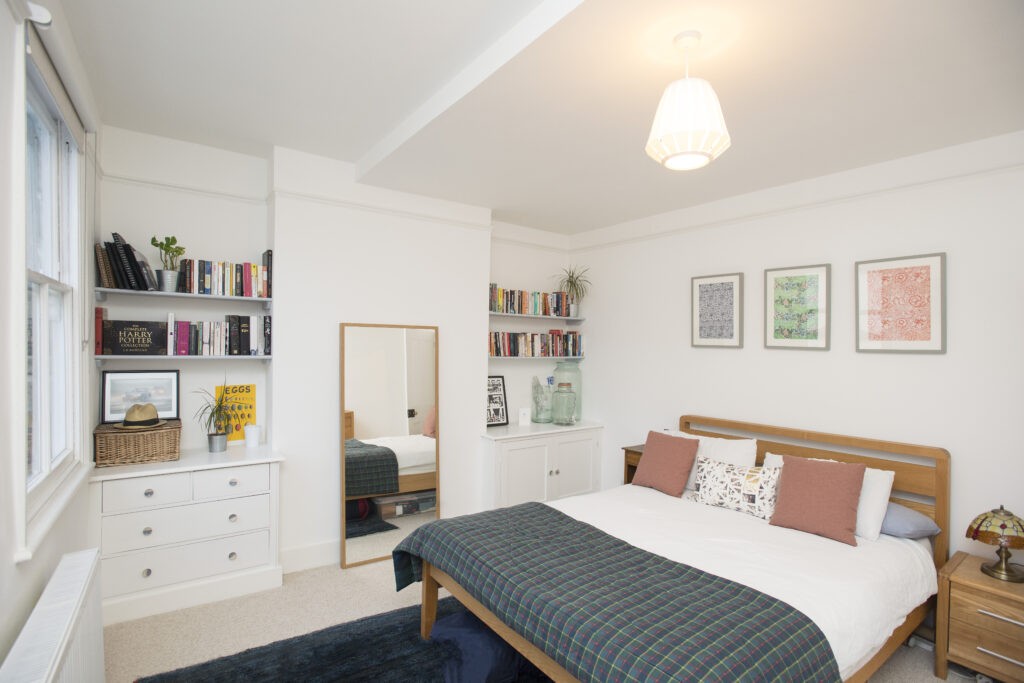
Waterproofing and Insulation
Two critical aspects of basement conversion are waterproofing and insulation. Since basements are below ground level, they are more susceptible to moisture infiltration. Proper waterproofing measures are essential to prevent water damage, mould growth, and structural issues.
Exterior waterproofing involves sealing the foundation walls and installing drainage systems, a proactive approach to keep water out. Interior waterproofing methods like sealants and moisture barriers can provide an extra layer of protection.
Insulation is equally essential for maintaining comfort and energy efficiency. Basements are cooler than above-ground spaces, so insulation helps regulate temperature and reduce energy consumption. Common basement insulation materials include rigid foam boards, spray foam, or fibreglass batts.
In a region with a high water table, divert water from the basement with exterior waterproofing techniques, such as foundation sealants and a perimeter drain system. These measures ensure the basement remain dry and comfortable throughout the year.
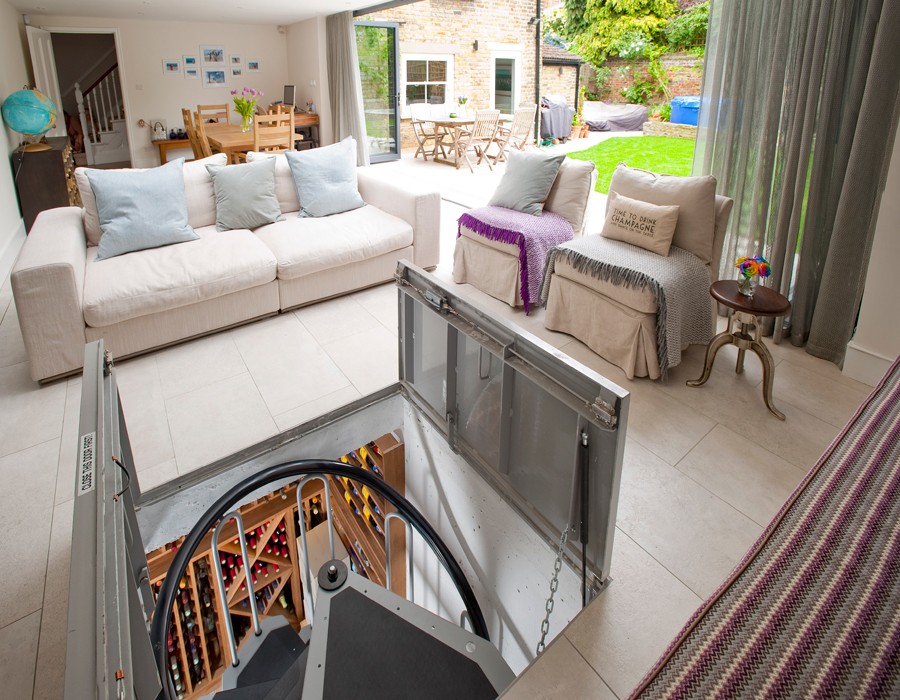
Adding Value to Your Home
A well-executed basement conversion can significantly increase your home’s value. This return on investment (ROI) can be particularly appealing if you plan to sell your property. Understanding how basement conversions impact home value can guide your design choices.
For example, transforming your basement into an additional bedroom or a guest suite can significantly boost your home’s appeal to potential buyers. A finished basement with a bathroom and bedroom suite adds valuable living space, making your property more attractive to potential buyers.
Similarly, a basement converted into a home office, gym, or entertainment area can increase the functionality and versatility of your home, making it more appealing to a broader range of potential buyers.
The exact ROI of a basement conversion can vary based on factors such as your location, the quality of the work, and the local housing market. However, it’s generally recognised that a well-designed and adequately executed basement conversion can yield a positive return on your investment.
To maximise the potential ROI, consider the preferences and needs of potential buyers in your area. For instance, a basement playroom or additional bedroom might be particularly appealing if your neighbourhood attracts young families. Consult with an estate agent to better understand the potential value added by your basement conversion.
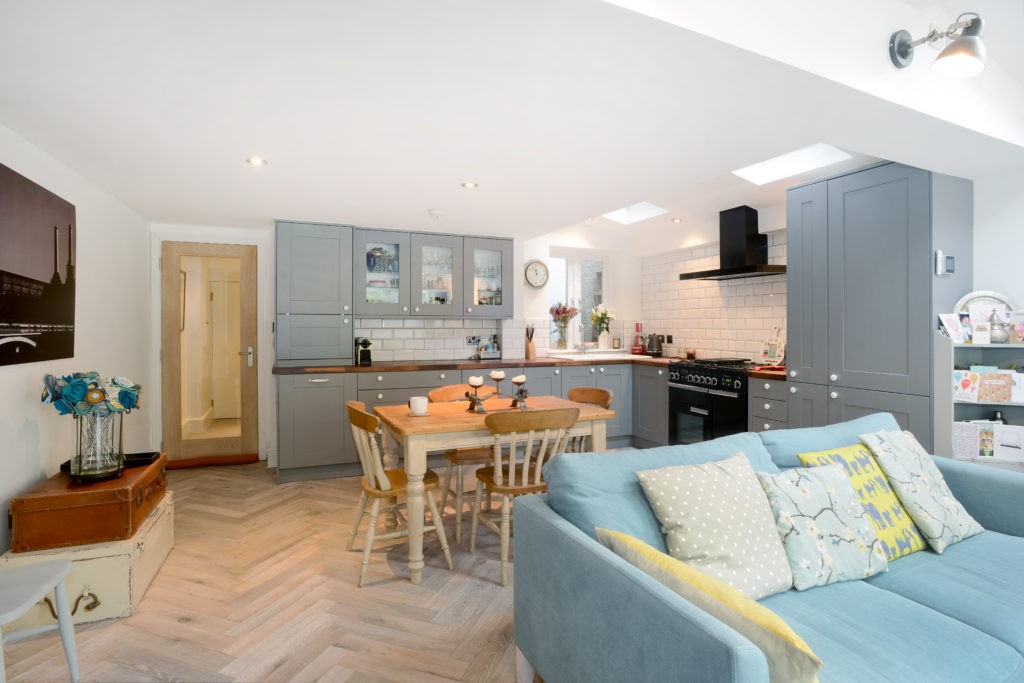
Basement Conversion Ideas
Basement conversions offer an array of possibilities for creating unique and functional living spaces. Depending on your needs and preferences, your basement can be transformed into a variety of exciting areas:
Home Theatre: Design a cinematic escape with comfortable seating, surround sound, and a large screen.
Home Office: Create a productive workspace with ample storage and natural lighting solutions.
Guest Suite: Design a comfortable retreat for guests, complete with a bedroom and a bathroom.
Playroom: Craft a safe, engaging play area for children with built-in toy storage.
Home Gym: Build a home gym with exercise machines and mirrored walls.
Wine Cellar: Turn your basement into a climate-controlled wine storage area with a tasting room.
Games Room: Create a space for recreation, including pool tables, arcade games, and a bar.
Art Studio: Design a creative haven with abundant natural light and specialised storage.
Music Studio: Soundproof your basement for musicians to practice or record music.
Library: Build a quiet, book-filled sanctuary for reading and relaxation.
Your basement conversion should reflect your interests, lifestyle, and household needs. With thoughtful planning and design, your basement can become a valuable and versatile extension of your home.

Common Pitfalls and How to Avoid Them
While basement conversions offer tremendous potential, they come with everyday challenges and pitfalls. Understanding these potential issues can help you avoid costly mistakes and ensure a smooth conversion process:
Moisture Problems: Basements are prone to moisture issues, leading to mould, mildew, and structural damage. Proper waterproofing is essential to prevent these problems. Invest in exterior and interior waterproofing methods to keep your basement dry.
Inadequate Ceiling Height: Some basements have low ceilings, making the space cramped. Check local building codes for minimum ceiling height requirements, and consider solutions like dropping the floor or using creative lighting to mitigate this issue.
Lack of Natural Light: Basements typically have limited natural light. Address this by strategically placing windows or light wells to bring in as much natural light as possible. You can also use artificial lighting to create a bright and inviting atmosphere.
Heating and Cooling Challenges: Basements tend to be cooler than above-ground spaces. Ensure proper insulation and consider adding a separate heating and cooling system for the basement to maintain comfort.
Egress and Safety: In an emergency, having proper egress windows or doors in your basement is essential. Failure to comply with safety codes can result in safety hazards and legal issues.
DIY Pitfalls: While some homeowners may be skilled in DIY projects, basement conversions often require professional expertise due to the complexities of plumbing, electrical work, and structural changes. Cutting corners or attempting a DIY approach without the necessary skills can lead to costly mistakes.
To avoid these pitfalls, working with experienced contractors and professionals specialising in basement conversions is advisable. They can help you navigate the unique challenges of transforming your underground space into a functional and stylish living area. Additionally, obtaining the necessary permits and adhering to local building codes is essential for a safe and successful basement conversion.


